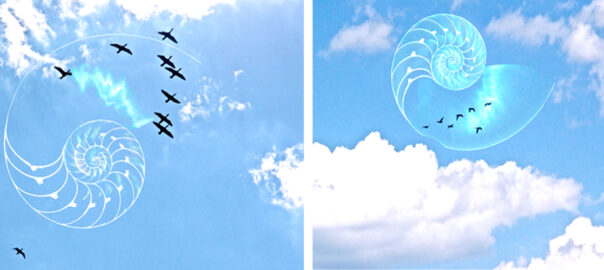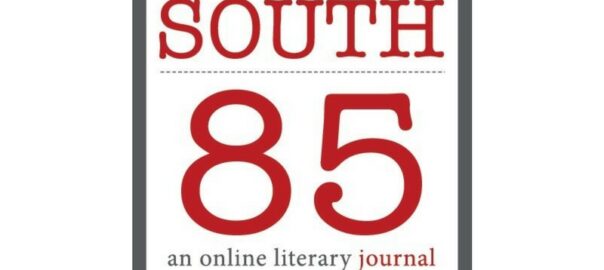Interview by Christine Schott
Andrew K. Clark is a self-described Appalachian Gothic novelist and poet. His book of poetry, Jesus in the Trailer (Main Street Rag Press) and his debut novel, Where Dark Things Grow (Cowboy Jamboree Press) both draw rich inspiration from the world of Appalachia, past and present. I had the opportunity to explore place, inspiration, and more with Andrew in the lead-up to his book launch on September 10, 2024.
Tell us a little about what Appalachia means to you. What do you want people to see of Appalachia through your work?
To me, Appalachia is certainly our beautiful geography which makes us famous, but it’s also about the uniqueness of our people. Appalachia is diverse racially, culturally, and in thought. If I could wave a magic wand, I would use it to let all the old caricatures die. In my work, I hope readers see what they’ve come to expect from great Appalachian literature (sense of place, family bonds, survivalism, dialect tradition, etc.) combined with the fantastical elements of magical realism and horror stories.
Your poetry collection, Jesus in the Trailer, is populated by people we feel we might have met before: struggling people, hard-edged people, generous people. Your novel, Where Dark Things Grow, draws on folklore, horror, and the preternatural. Do you see fundamental connections between these two works?
I think both books are exploring the same themes at their core. The religious traditions & superstitions of the narrative voices in Jesus in the Trailer are present, and perhaps more fleshed out, in Where Dark Things Grow. Family dysfunction and struggle are at the heart of both, along with a love story along the way. Also, my prose leans poetic, at least according to early reviews, so I think fans of one would be natural fans of the other.
What drew you to poetry, and what has since tempted you into the world of fiction? Do you see your future self as moving between these two worlds frequently?
When I was in high school, a friend gave me a collection of Langston Hughes poems. That flipped a switch for me; prior to reading Hughes I had thought of poetry as Shakespeare, and while I’ve grown to love Shakespeare, I didn’t immediately see it as accessible for someone like me. Hughes wrote in his natural vernacular and showed me I could do the same as a Southern Appalachian poet. I think the draw to fiction is a product of that same realization when I discovered southern writers, and the connections I later made to writers using fantastical elements like Murakami and Marquez. At my core, I love stories, and I love language. I cannot imagine not writing both.
Where did you first encounter the folklore you draw on for Where Dark Things Grow? Did you adhere closely to real folklore, or did you make significant changes to suit your novel?
Once I knew I wanted to include fantastical elements in the story, I decided early on to use only folklore I could trace to my family heritage. The idea for wulvers came from Scottish folklore, but I twisted them into something new in the story, giving them some of the elements of the dire wolves from Game of Thrones books. Mr. Wake, one of the novel’s villains is Norwegian, which I can trace to my own heritage. The religious traditions explored in the book are mostly from my own personal experience growing up in a very conservative strain of Christianity. Some characters in the book wear wooden booger masks from Western North Carolina Cherokee tradition, but they’re white men co-opting this tradition; classic cultural appropriation.
In marketing, we talk about “comparable titles.” The best way I’ve heard comps described is as books that belong on the same shelf as yours. What books would you love to see your novel share the shelf with?
Where Dark Things Grow belongs on horror bookshelves alongside books like The Hollow Kind and The Boatkeeper’s Daughter both by Andy Davidson, and The Only Good Indians by Stephen Graham Jones. It also belongs on the southern gothic lit bookshelf beside books like The Gods of Howl Mountain by Taylor Brown, Serena by Ron Rash, and Winter’s Bone by Daniel Woodrell.
What was the publication process like for you? You’ve gone the route of publishing with small presses without an agent. What are some of the advantages and disadvantages of that approach?
One thing I am proud of with Where Dark Things Grow – out 9/10/24(Cowboy Jamboree Press) and its sequel Where Dark Things Rise – coming fall of 2025(Quill & Crow Publishing House) is that they bend genre. They contain elements of horror, magical realism, historical fiction, and southern gothic. But this means that the work doesn’t fit neatly into a traditional marketing box understood by the agent querying process. Indie presses are generally bolder and more welcoming of books that defy such easy categorization. So, the positive of traditional indie press publishing, although still quite competitive, is being able to tell a story the way I want as an author. I also have a say in elements such as my cover designs. The negatives would be distribution (your book isn’t automatically in a large number of bookstores) and that I am basically my own marketing department alongside a publicist I hired.
What’s your next project? Do you always have a new project up your sleeve when you finish something, or do you need a creative break between endeavors?
I have started on a third novel and a second poetry collection, both of which are quite different. I don’t think I need creative breaks; I don’t think there’s any such thing for writers. Even when we’re not writing, we’re writing. But I do crave breaks from the marketing involved with book launches and promo; if for no other reason than to get back into the right headspace to create something new.
What do you wish people would ask you about your writing?
I wish more readers would connect or comment on what I am saying about class in my work.
For more information on Andrew and his work, visit the following pages:
- Andrew’s website: https://www.andrewkclark.com/
- Order Where Dark Things Grow: https://www.malaprops.com/book/9798859532308
- Events: https://www.andrewkclark.com/news
ABOUT
Andrew K. Clark is a writer from Western North Carolina where his people settled before the Revolutionary War. His poetry collection, Jesus in the Trailer was published by Main Street Rag Press and shortlisted for the Able Muse Book Award. His debut novel, Where Dark Things Grow, is forthcoming from Cowboy Jamboree Press in September of 2024. A loose sequel, Where Dark Things Rise will be published by Quill and Crow Publishing House in the fall of 2025. His work has appeared in The American Journal of Poetry, UCLA’s Out of Anonymity, Appalachian Review, Rappahannock Review, The Wrath Bearing Tree, and many other journals. He received his MFA from Converse College. Connect with him at andrewkclark.com.
Christine Schott, South 85 Fiction Editor, teaches literature and creative writing at Erskine College. She is Pushcart-nominated author whose work has appeared in the Gettysburg Review, Dappled Things, Casino Literary Magazine, and Wanderlust. She holds a PhD in medieval literature from the University of Virginia and an MFA in creative writing from Converse University.


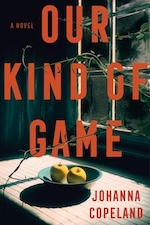
 Winning story: “As To Your Comment That It Could Have Been Worse” by Caridad Moro-Gronlier.
Winning story: “As To Your Comment That It Could Have Been Worse” by Caridad Moro-Gronlier.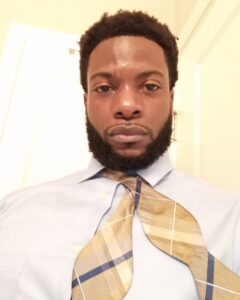 Winning Poem: “A Black Poet Looks Back at his Boyhood” by Oak Morse.
Winning Poem: “A Black Poet Looks Back at his Boyhood” by Oak Morse.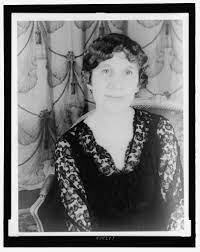
 uzanne Cleary’s Crude Angel, her fourth full-length poetry collection, was published in November 2018 by BkMk Press (U of Missouri-Kansas City). Beauty Mark (BkMk 2013) won the John Ciardi Prize for Poetry, and also received the Eugene Paul Nassar Poetry Prize and the Patterson Award for Literary Excellence. Keeping Time (2002) and Trick Pear (2007) were published by Carnegie Mellon University Press. Poets Marilyn Nelson and Robert Cording selected her collection Blue Cloth as winner of the 2004 Sunken Garden Poetry Festival chapbook competition.
uzanne Cleary’s Crude Angel, her fourth full-length poetry collection, was published in November 2018 by BkMk Press (U of Missouri-Kansas City). Beauty Mark (BkMk 2013) won the John Ciardi Prize for Poetry, and also received the Eugene Paul Nassar Poetry Prize and the Patterson Award for Literary Excellence. Keeping Time (2002) and Trick Pear (2007) were published by Carnegie Mellon University Press. Poets Marilyn Nelson and Robert Cording selected her collection Blue Cloth as winner of the 2004 Sunken Garden Poetry Festival chapbook competition. Susan Tekulve is author of Second Shift: Essays and In the Garden of Stone, winner of the 2012 South Carolina First Novel Prize and a 2014 Gold IPPY Award. She’s also published a short story collection, Savage Pilgrims, and two fiction chapbooks, Washday and My Mother’s War Stories. Her work appears in Denver Quarterly, Indiana Review, The Georgia Review, Connecticut Review, The Louisville Review, Puerto del Sol, New Letters, and Shenandoah.
Susan Tekulve is author of Second Shift: Essays and In the Garden of Stone, winner of the 2012 South Carolina First Novel Prize and a 2014 Gold IPPY Award. She’s also published a short story collection, Savage Pilgrims, and two fiction chapbooks, Washday and My Mother’s War Stories. Her work appears in Denver Quarterly, Indiana Review, The Georgia Review, Connecticut Review, The Louisville Review, Puerto del Sol, New Letters, and Shenandoah.